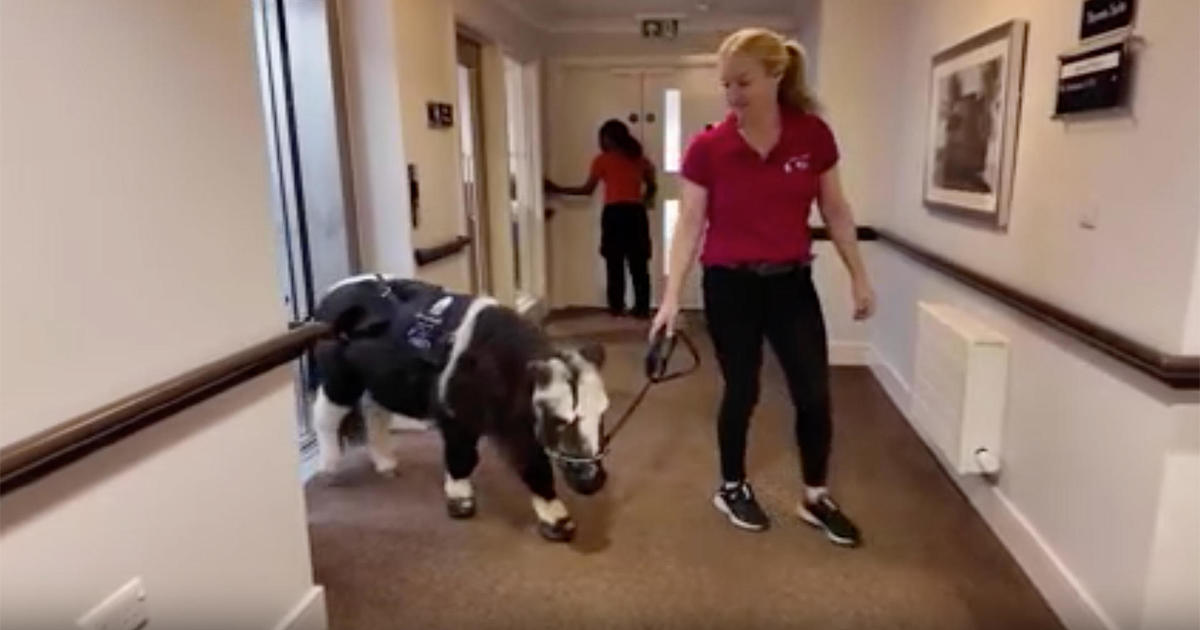Introduction
In recent years, therapy ponies have emerged as a transformative presence in nursing homes, offering emotional support and companionship to elderly residents. This innovative approach not only enhances well-being but also fosters connections and joy among the elderly. This article delves into the benefits of therapy ponies, their impact on nursing home residents, and the broader implications of animal-assisted therapy.
Understanding Therapy Ponies
Therapy ponies are specially trained animals that visit various facilities, including nursing homes, to provide comfort and companionship. Their gentle nature and manageable size make them particularly suitable for environments where traditional therapy animals might be less practical. These ponies are often miniature breeds, such as Shetland ponies, known for their calm demeanor and adaptability.
Benefits of Therapy Ponies
- Emotional Support: Interacting with therapy ponies can alleviate feelings of loneliness and depression among nursing home residents, offering a sense of companionship and emotional relief.
- Physical Engagement: Activities like petting, brushing, or simply observing the ponies can encourage physical movement and improve motor skills.
- Cognitive Stimulation: Engaging with animals can stimulate cognitive functions, enhancing memory and attention in elderly individuals.
- Social Interaction: Therapy ponies serve as a catalyst for socialization, prompting conversations and interactions among residents and staff.
Impact on Nursing Home Residents
The presence of therapy ponies in nursing homes has been associated with numerous positive outcomes:
- Enhanced Mood: Residents often exhibit improved mood and reduced anxiety following interactions with therapy ponies.
- Increased Physical Activity: The motivation to engage with the ponies can lead to increased physical activity, which is beneficial for overall health.
- Improved Socialization: Therapy ponies can bridge communication gaps, encouraging residents to interact more with each other and with staff members.
For instance, the Dinky Ponies, a team of miniature Shetland ponies in the UK, have been visiting care homes and hospitals, bringing joy and uplifting spirits among elderly residents. Their presence has been noted to change residents’ moods and encourage social engagement.
Similarly, in Germany, Shetland ponies have been brought into nursing homes to provide variety and comfort to residents, highlighting the therapeutic effects of animal interactions in such settings.
Broader Implications of Animal-Assisted Therapy
Animal-assisted therapy, encompassing interactions with various animals including ponies, has gained recognition for its therapeutic benefits across different populations:
- Children with Autism: Robotic pets, like the Paro robot seal, have been used to comfort children with autism, providing companionship and reducing anxiety.
- Prison Inmates: Programs involving animals, such as cell dog programs, have been implemented in prisons to relieve stress and provide benefits to inmates.
- Veterans with PTSD: Therapy animals, including dogs and pigs, have been utilized to support veterans suffering from post-traumatic stress disorder.
These examples underscore the versatility and effectiveness of animal-assisted therapy in diverse settings, offering emotional and psychological support to various groups.
Considerations and Ethical Aspects
While the benefits are evident, it’s essential to consider the ethical implications and ensure the well-being of both the animals and the individuals they interact with:
- Animal Welfare: Ensuring that therapy animals are treated with respect and care, and that their participation in therapy is voluntary and not stressful.
- Human-Animal Bond: Recognizing the depth of the bond between humans and animals, and the potential emotional impact on residents when therapy animals are not present.
- Professional Training: Ensuring that both the animals and the handlers are properly trained to provide safe and effective therapy sessions.
Addressing these considerations is crucial to maintain the integrity and effectiveness of therapy programs involving animals.
Conclusion
Therapy ponies represent a promising avenue for enhancing the quality of life in nursing homes, offering emotional support, physical engagement, and social interaction to elderly residents. Their presence not only brings joy but also contributes to the overall well-being of individuals in care facilities. As the field of animal-assisted therapy continues to evolve, it is important to uphold ethical standards and prioritize the welfare of both the animals and the individuals they serve. Embracing such innovative approaches can lead to more compassionate and holistic care environments for the elderly.
See more WebMD Network



